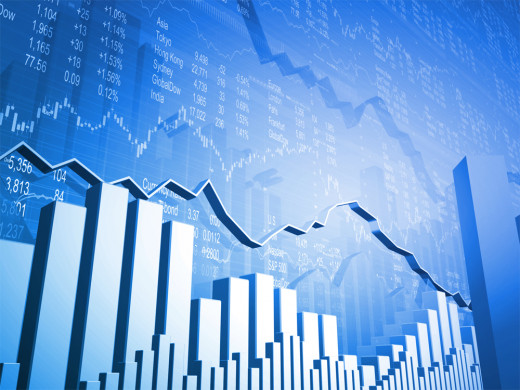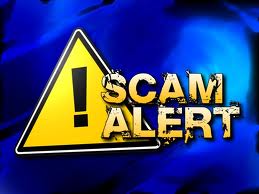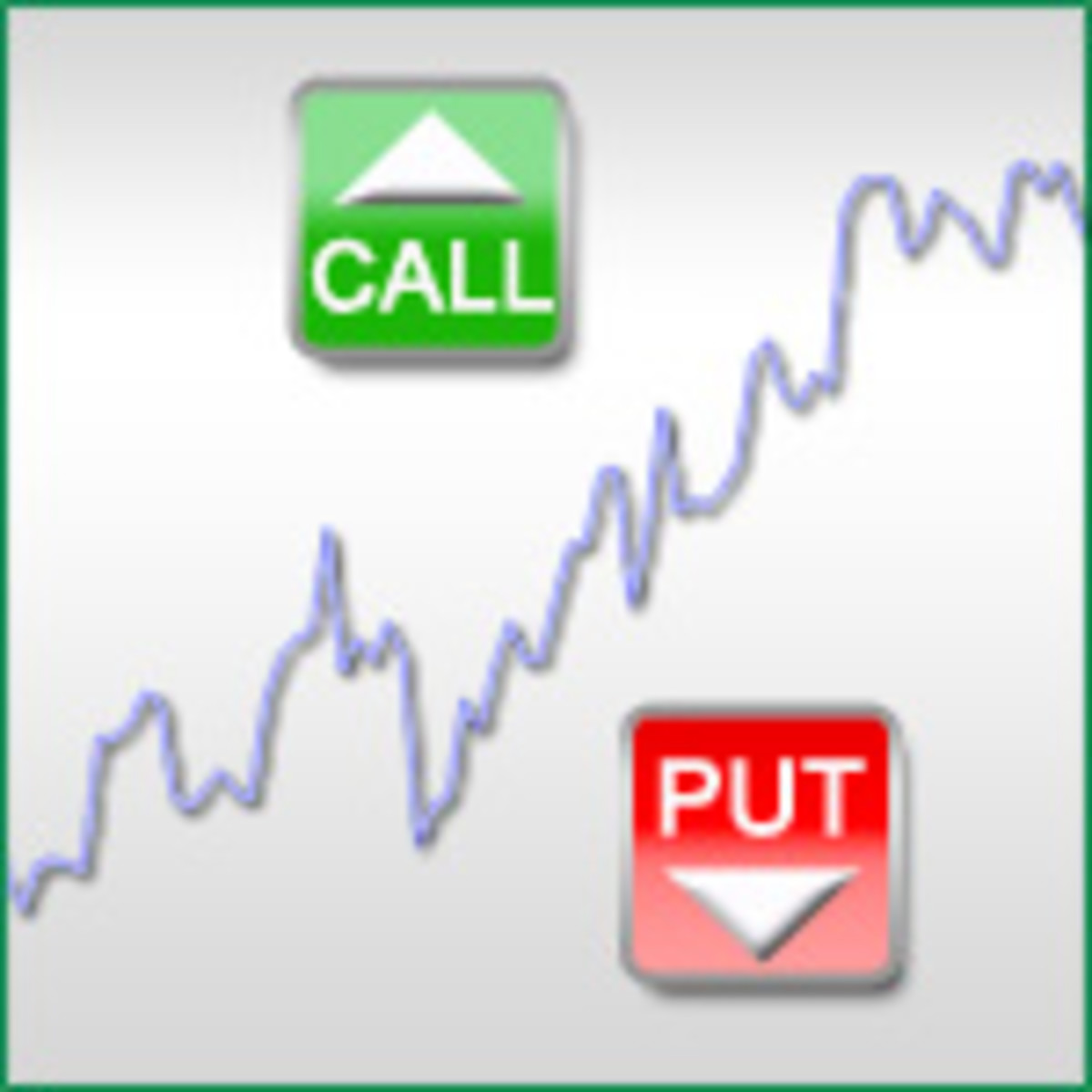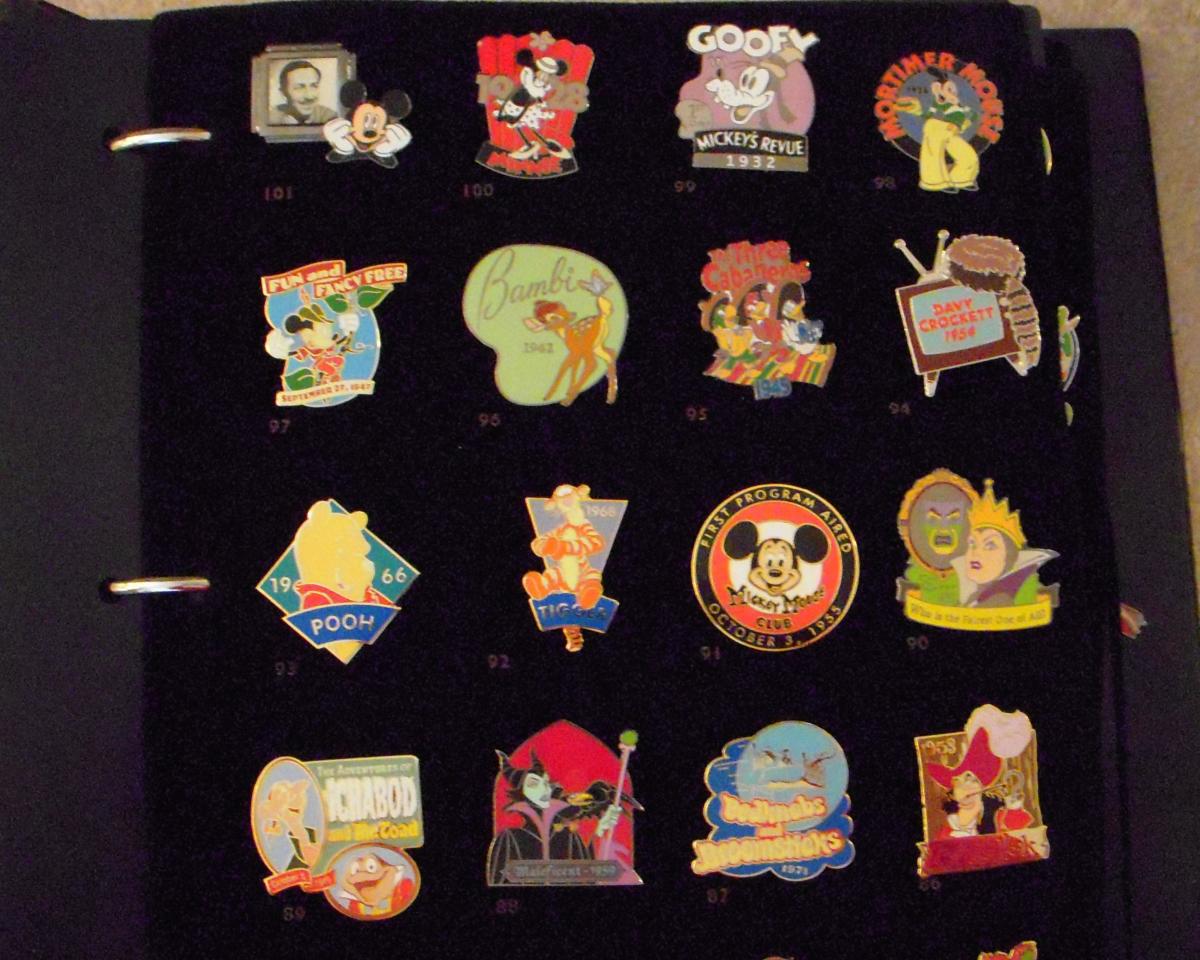Information and Tips for People Interested in Currency Trading

Disclaimer!
Currency trading is EXTREEMLY risky; and therefore, most financial and investment professionals DO NOT recommend it!
I am neither a forex professional nor an expert chart/news analytic. I cannot promise in any way, shape, or form that the information in this article will help you make money. However, I have been trading forex for many years and have learned much which I believe will help others understand the fundamental concepts and processes involved in currency trading. I did not refer to many outside sources while composing this article because I believe that my personal experience and perspective will be of more value than simply taking from the large amount of collective knowledge on the topic of currency trading which already exists on the internet.
With that being said, I hope you find this article interesting and relevant!

Currency Trading Scams
Rule: when researching currency trading online, use extreme caution!! For your information, extreme caution is the kind of caution that cats use around water.
I decided to cover this first because of the large amount of scams on the internet attempting to entrap new traders into “get rich quick” schemes that simply do not work. Sadly, millions of individuals have been scammed by these schemes during the past decade, and many have lost thousands of dollars because of it. Many websites use deceptive claims and promises to entice prospective forex traders into buying their worthless service/product/information. Recently, the currency trading community has made great strides to “weed out” the good from the bad. When researching anything to do with currency trading, this is a great resource.
Several Important Definitions
- Base currency – The currency used to initially fund the forex brokerage account (this is my definition, using the phrase “base currency” helps me explain certain concepts).
- Pip – The smallest amount of measured change in a currency’s value.
- Forex – Stands for “Foreign Exchange”; a synonym of “currency trading”.
- Spread – The difference between the actual value of a currency pair and the value you can purchase it at; this amount goes to the broker.
- USD – Stands for “United States Dollar”
- JPY – Stands for “Japanese Yen”
- CAD - Stands for "Canadian Dollar"
- Leverage - An individual's ability to borrow currency for use in a trade. The way forex is set up, the lender never looses money, and the trader never owes the lender money. However, the more money traded/borrowed, the more money can be lost if the trade goes awry.
- Take profit - A pre-designated value set by the trader that will stop the trade and take the profit. This value is necessarily higher than the trade entry value.
- Stop loss - A pre-designated value set by the trader that will stop the trade and cut loses. This value is necessarily lower than the trade entry value.
Fun Facts!
- Did you know that the amount of currency traded through Forex every day is equivalent to over 4 trillion U.S. dollars? That amount is MUCH larger than the amount traded in the U.S. stock exchange.
- Currency trading is historical; however, for most of that time it has been controlled by big players (such as banks and governments) who buy large amounts of physical currency, wait for its value to go up, and sell it back for more of the original currency. The numerous technological advances of the last decade have revolutionized Forex trading. It has been unlocked for everyone with an internet connection and a bank account. However, the general concept of taking advantage of currency value fluctuations remains unaltered.
- Forex never sleeps! Because currency trading is operates globally through several foreign exchanges, it goes 24 hours a day (Sunday @ 5:00pm EST – Friday @ 5:00pm EST).
Legal
U.S. financial regulations are not as favorable towards currency trading as they are in other countries. In my opinion, it is worth giving up the ability to take extremely high financial risks in exchange for the market regulation and financial protection that the U.S. Government provides.
In the U.S., traders must be at least 18 years of age with a government issued ID and social security number. Like all other earnings, money earned from forex trading MUST be reported to the IRS for taxation; failure to do so can result in grave consequences! When registering with a broker, they will require you to fill out a standard IRS form for tax purposes.
Why so many People are not Successful at Currency Trading
In my opinion, many people (around 95% of people who try forex) are not successful at forex for these reasons:
- They thought forex was a game, like gambling
- They let their greed take control
- They lost their patience
- They did not take the time to learn forex
- They only used one strategy
- They did not use stop losses
- They did not keep enough money in their account
- They never knew when to stop, or take a break
With every chart fluctuation, money can be made… LOTS of money… and that seems to drive most people crazy!
I have always wondered if people who are horrible at investing can be successful by doing the opposite of what they think they should do? Just a thought!
Long-Term Success in Currency Trading Involves:
- Knowledge of technical indicators
- Chart analyzing skills
- Knowledge of how news events affect currency rates
- Trade execution/set up skills
- Knowledge of when to take a break from forex
- Trend and market pattern analyzing skills
In my opinion, successful forex traders are a select breed. What I mean by that is… currency trading takes certain mental characteristics that keep people from going crazy over all the dollar signs flashing in their eyes!
Are you a Good Candidate for Currency Trading?
It takes four things to become successful in forex
- Patience
- Self-control
- Money that you can afford to lose
- The ability to learn from mistakes and develop a successful system
Stock or commodity speculators may have a good head-start in forex trading because they already have substantial knowledge about chart and news analysis. In my opinion, forex trading is like stock trading on steroids!
How much $$$?
This is the question on every new traders mind. I wonder why…? To be honest with you, there is truly unlimited earning potential through forex. However, you should take that with a grain of salt because it is not that simple! If you decide to trade forex, I recommend setting a goal of a 10% per year return on the money you put into your account. That is, by far, better than the vast majority of investments types out there. Setting a goal will help you stay smart. If you do not have a goal, it is too easy to become "addicted" to making trades. What I mean by that is, as soon as you close a trade, you will feel pressured to open another one. And that, inevitably, will cause you to enter into more bad trades and will probably result in the loss of most (if not all) of the money in your account. If you set a goal of 10% per year, which is fairly conservative as forex trading goes, it will help you maintain a sense of control and accomplishment.
One of the main attractions to forex trading is that it gives people the ability to make a TON of money. Forex profits are determined through pip value (see definitions). Pip value depends on the amount of currency traded; the more money you trade with, the more you can make (or lose). If you are trading one micro lot ($1,000 worth of currency), each pip is worth 10 cents. If you are trading a small lot ($10,000 worth of currency) each pip is worth $1. And if you are trading a standard lot ($100,000 worth of currency) each pip is worth $10. Trading 100 micro lots is equivalent to trading 1 standard lot.
You can trade as many lots as you want; if you want to make $100 per pip, you must trade 10 standard lots. And if a trade moves 15 pips in your favor per day (a reasonable amount) you could make $1500. However, in my opinion, that is not something to set your sights on! Few forex traders trade full-time, and most of those who do trade full time are not millionaires. However, forex trading can provide a great supplemental income!

The Process of Currency Trading Explained
Stocks, along with numerous other investments, gain value as they appreciate. You can buy apple stock or a collectable car in the hopes that it will go up in value. People invest in these items in order to make money from selling them later at a higher price.
Forex is a little more involved than these other investments because it is impossible to buy currency with itself; buying something necessarily involves exchanging something with something else. However, it is possible to invest in a currency through another currency. Through the process of comparing currency exchange rates through foreign currency exchanges around the world, people are able to profit from investing in currency. Currencies are traded in pairs, such as USD/CAD (see definitions). If you “buy” USD/CAD, you hope that the American economy does well in comparison to the Canadian economy, or that Canada’s economy declines compared to that of U.S.
How is the value of a currency pair calculated?
Let us presuppose that the base currency (see definitions) is the U.S. Dollar and its value is equal to 3. Theoretically, If the value of the Euro is worth 1 U.S. Dollar and the Yen is worth 2 U.S. dollars, the value of EUR/JPY can be thought of as (1/3)/(2/3). These values are always calculated using division. The base currency can be thought of as the common denominator; and if you know mathematics, you know that common denominators cancel each other out in this case. Therefore, the USD (in a sense), is irrelevant.
If you believe that the Yen will appreciate in comparison to the Euro (or if you believe the Euro will depreciate in comparison to the Yen), you would want to sell EUR/JPY. If you believe that the Yen will depreciate in comparison to the Euro (or if you believe that the Euro will appreciate compared to the Yen), you would want to buy EUR/JPY.
As an example, let us say you decide to sell EUR/JPY.
Modern day currency trading is built around the concept of physically exchanging currencies for one another. Therefore, I will attempt to outline the theoretical timeline of events that occur in the process of selling EUR/JPY. Initially, the base currency (USD, in this case) would be exchanged with the Euro, then, the Euro would be exchanged with the Yen, next (and hopefully after the value of the Yen has appreciated), the Yen would be exchanged back with the Euro (for more Euros, if all went well), and lastly, the Euro would be exchanged back into the USD (hopefully for a profit!).
For another example, let us say you decide to buy EUR/JPY.
To begin, the base currency would be exchanged with the Yen, then, the Yen would be exchanged into the Euro, next, the Euro would be exchanged back into the Yen, and lastly, the Yen would be exchanged back into the base currency.
Thankfully, modern internet-based currency trading does not involve the actual exchange of currencies; even when trading EUR/JPY, the trader is never in possession of any other currency than their base currency because all the exchange rates are pre-calculated and the actual exchange process can therefore be bypassed.
After learning the internal processes of currency trading, it is not necessary to keep them in mind at all times while trading. In my opinion, it is best to think of currency trading as buying a stake in an economy in comparison to another economy. Only one economy has to change; however, it is important to remember that there are two economies involved in each trade!
Forex Brokers
In order to trade forex online, you must have a broker!
Brokers provide the account, the trading platform, the ability to leverage, the ability to execute trades, and many other tools and educational resources.
When choosing a forex broker, it is ESSENTIAL to read reviews and do your research. Not only do these companies have your money, they have your personal information! I recommend exploring forexpeacearmy.com, a forex services review site.
In my opinion, a good broker has these three attributes:
- Numerous good reviews
- Accounts fundable by credit card
- A good track record
- A history (meaning that they are not new)
- Good customer service
- Large client base
- A location inside of the U.S.
I have used several brokers in the past; however, for the past two years I have used FXCM. I have not had any issues with them and I love their service. The main reason I picked FXCM is because they are a very stable company with a good track record. They are publicly traded on the New York Stock Exchange. And they have a location in Dallas, Texas. However, like I have said, you must do your own research!
Account Types
In general, brokers offer three main account types:
- Micro/basic
- Standard/premium
- Active Trader
Note: Different brokers use different names
What separates these account types is not so much the amount currency traded as it is the different features included and the amount of money you must keep in the account. For example, micro accounts are normally traded through a web platform, while standard accounts can be traded through the metatrader 4 platform (which has many more features than the web platform). In addition, standard account often allow automated trading while micro accounts do not.
Using Leverage
The good news is, because of leverage, people do not have to pay the lot value out-of-pocket. The highest amount of leverage offered by brokers in the U.S. is 50:1, this is because of governmental regulations. In other countries some brokers offer up to 1,000:1. When using 50:1 leverage, you are putting down 2% of the lot value, and the broker is "covering" the rest. Therefore, if you are trading with a standard lot, you would only pay $2,000 out-of-pocket for each lot traded. While leverage helps traders make more money, it also has the opposite effect if the trade does not move in your favor!
Notes:
- Traders never owe the broker
- The broker never looses money. This is because you are using the money for YOUR trade... all money gained or lost affects only your money
Automated Forex Trading
Automated forex trading systems execute trades without the direct command from the user. Often, they are referred to as Expert Advisors (EA’s). Essentially, EA’s are a coded script of rules assigned to one or more currency pairs. Many EA’s use a strategy called “scalping”, which is essentially the process of trading a high-volume currency pair for a very short term. Scalping can be thought of as the opposite of staying with a trade for the long term, scalping EA’s normally use a strategy that prioritizes quantity over quality based on the current price, volume, and historical chart movements. The take profit levels are normally very small (often around 10 pips); however, scalping is a good way to make money with forex. In order to have an automated trading system, you can either code your own (which can be quite involved), pay someone else to code one for you (which can be quite expensive), or buy a pre-coded system. The later choice is probably the best; however, prospective buyers need to be very aware of false advertising claims! I highly recommend testing any EA’s on a simulated forex account before activating it on your real account!
Automated trading pros and cons:
- Pro: You do not have to execute the trade yourself, the trades are based on math, the factor of emotion is removed.
- Con: EA’s do not take into account the news and current events which can HEAVILY influence the chart. However, it is worth noting that EA’s have made significant advancement in recent years. Some EA’s can tell when the trend is changing and therefore, they know when to “take a break”.
Signal Services
Numerous individuals who claim to be “forex experts” have started services that send a signal (through SMS, RSS, email, or their website) to subscribers telling them to trade certain pairs. These signals normally include instructions for setting specific take-profit and stop-loss levels. Some of these services are much more legitimate than others. Choosing a signal service should involve doing some research! Do not fall for false advertising claims!
Chart Indicators
Indicators are basically math-based tools included in metatrader (and other platforms) that help analyze and predict chart movements. Personally, I use two indicators:
- The RLW (% Larry Williams) indicator is a volume-based indicator which shows when a pair is “over-bought” or “over-sold”. If a pair is heavily overbought and is at a high value, it could be time to sell it!
- The MACD (Moving Average Convergence Divergence) indicator compares different moving averages against volume, it is a good comprehensive indicator and it is by far my favorite!
News Trading vs. Chart Trading
Which is better, trading according to the chart, or trading according to the news? In my opinion, BOTH of these must be done in order to successfully trade forex. It is possible to make good money simply trading from the chart; however, news and current events can influence quick unforeseen change in the chart that can render you… completely broke… Do not ask how I know ;).
Those who only trade based off news are missing out because most profits made in forex are based off past historical trends. If nothing else, it is good to keep up with the news simply to get a “heads up” on important changes. Only certain significant events can affect the value of a currency; therefore, normal every-day news is not the best resource for forex traders. For example, when Lindsey Lohan goes back to rehab, the value of the USD does not change. There are several online news outlets that are specifically for forex traders. It is important to learn how different news events affect the value of a currency. Events that change the value of a currency include but are not limited to:
- Whether the economy is growing (spending money) or receding (not spending)
- Currency reserve changes
- Interest rate changes
- Movement of extremely large amounts of money
- Important events, such as the beginning of a war
My Recommendations to New Traders
- Be patient
Do not jump into forex trading too fast!
- Remember, forex trading is NOT gambling
If you think of currency trading as gambling, you will lose all your money faster than a magician can make a bunny appear in a hat!
- Expect to lose some money
All successful traders lose money, the goal is to have more winning trades than losing trades. It is ESSENTIAL to know how to get out of a trade when the time is right. If a bad trade is allowed to progress, it can destroy months of progress! Do not be discouraged when you lose money. Learn from mistakes, we all make them!
- If you find forex trading is not for you, it does not in any way mean you are a failure
Congratulate yourself for giving it a shot, and move on.
- Start with a smaller lot size than the standard lot
It is good to start small. Once you have mastered currency trading, move up to the standard lot. Remember, there is no rush! Currency trading is not going away or diminishing any time soon!
- Use a forex simulator for at least 6 months before opening an account with real money
This may be hard for some; however, it is a really good idea! As you read this article, you might be thinking, “I can do all that! No problem!” However, it is far too easy to overestimate yourself when it comes to currency trading. Starting with a simulator (which costs nothing) can help you decide whether or not forex is a good decision. You definitely do not want to go spend thousands of dollars THEN find out that it is not for you!
- Set your trades and go
Do not sit in front of your computer with your face an inch from the screen wondering, hoping, praying, and possibly even going into shock (it happens) as you watch every chart fluctuation! WAY too many people make this mistake. The goal is to minimize your emotional involvement as much as possible. Some traders seem to have an uncanny ability to predict the future; however, I digress.
- Never make quick trades
Another mistake many people make is trading without any doing research or chart-analysis. It may be difficult not to enter a trade when you are thinking, “If I do not do this now, the opportunity will pass!” However, taking the time to do these things is essential!
- Trade on the 1 day time-frame
The day chart is recommended for new traders. It takes more experience to spot good trades on longer time-frame charts (such as the week and month charts). And the minute and second charts are too similar to gambling and therefore are not good to start with either.
- Use MACD/RLW indicators
This will greatly help you spot possible trade entrance points!
- Actively follow a well-reviewed and up-to-date currency-specific news site
Most brokers provide this information as well!
- Only have one trade open at a time (at least while you are learning)
A lot of the currency pairs include (or are heavily influenced by) the USD. Therefore, as the value of the USD fluctuates, a lot of the currency pairs will fluctuate accordingly. If you have multiple trades open during these times, you can lose a lot of money. Having multiple trades crash on you is not a good way to start forex trading!
- Only use what you can lose
Trust me on this one!
- Set stop loss/take profit values for each trade
These values really depend on the type of trading you are doing; including: your trading time-frame, the profits you are looking for, and the charts current trend. Personally, I try to make anywhere from 10 to 100 pips per trade.
- When you fund an account, fund it well
Expect to initially invest between $2,000 and $5,000. Most trades will not do exactly what you want immediately after execution; they will fluctuate up and down before (hopefully) going the way you want them to. If you do not have enough money in your account, the trade could automatically close out if it moves against your position because most brokers automatically close out trades once a certain amount of the total account value is tied up in a trade. Normally, brokers require 30% of the money in your account to act as a buffer for your trades. You can’t have a negative value in your account. Brokers automatically close out trades for the protection of their clients. However, you do not want every trade to close out if it dips! Therefore, as I said earlier, fund your account well! Only keep a small fraction of your account in a trade at one time! I recommend keeping a 50/50 balance.
- Set a conservative profit goal
I would suggest setting a goal of a 10% return per year on what you have in your account. This will help you maintain control and a feeling of accomplishment.
- Only use and EA/signal service after you know how to trade for yourself
It is essential that you know rational behind forex trading before you pay someone or something else to do it for you!
Thank you very much for reading! I hope you found this information interesting and helpful!








